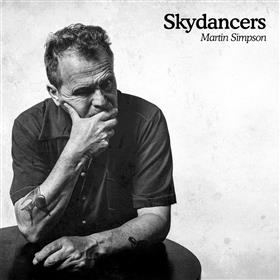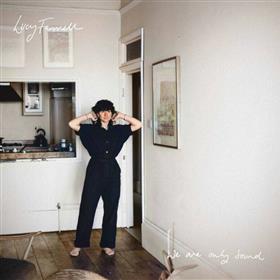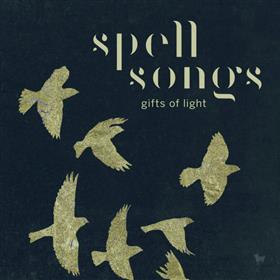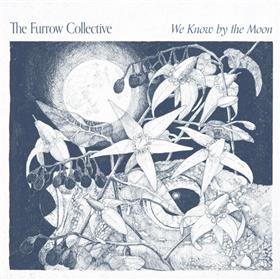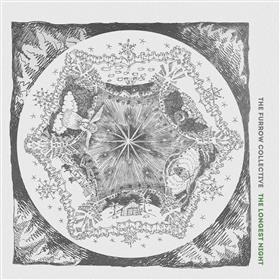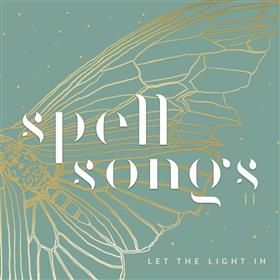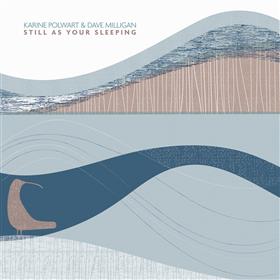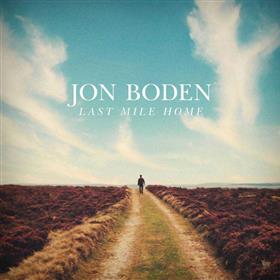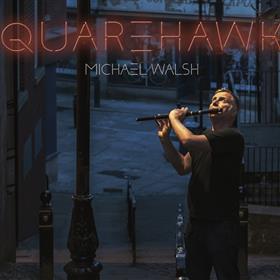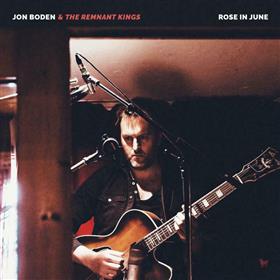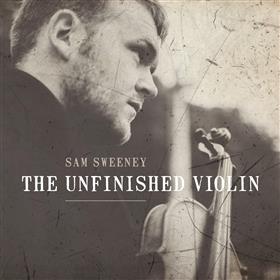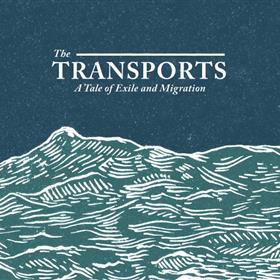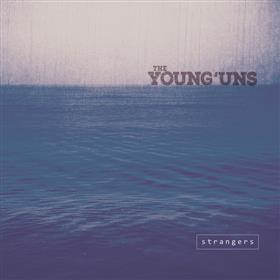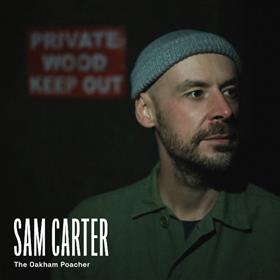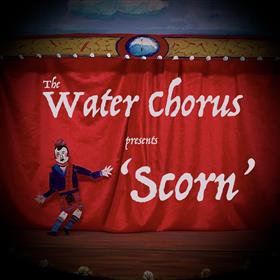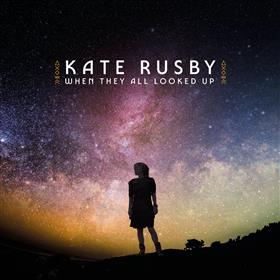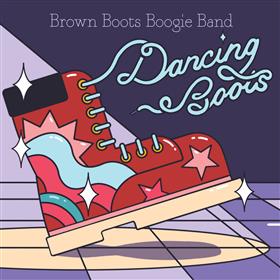The Young’uns - Tiny Notes
2023 studio album

the bright young folk review
Twenty years on since mates Sean Cooney, Michael Hughes and David Eagle discovered folk music in the back room of The Sun Inn in their native Stockton-on-Tees, they have established themselves as one of the finest contemporary names on the circuit, up there with such legends as Show Of Hands, Fairport Convention, and Bellowhead. This, their third album, again emphasises the unaccompanied side of their work, their voices, whether individually or in harmony, both powerful or tender depending on the nature of the song.
But they’ve also fleshed out the sound, with Eagle bringing piano to the table and assorted string arrangements by no less than Jon Boden. As ever, they draw on real life figures in songs that, written by Cooney, speak of the human spirit and condition, of social iniquities, of tragedy and joy, and of generosity and compassion.
They open in three part a capella harmony with the traditional-flavoured Jack Merritt’s Boots, a tribute to and celebration of the 25-year-old who was working at a prisoners’ rehabilitation event in 2019 when, along with his colleague Saskia Jones, he was killed in the London Bridge terror attack. The line “As I came over London Bridge all the flowers had gone/But I swear I saw Jack Merritt’s boots and they were marching on” is evocative of Joe Hill, while the lyric “We’re not the clothes we’re wearing or the world we’re born into/We’re not the scars we’re bearing but the door we’re walking through” embodies a theme that runs throughout their work.
The album is punctuated throughout by brief poems about love, sung unaccompanied by guest vocalists. The first, Book, delivered by Anne Lamb in an old parlour singing style, leads fittingly into the piano and string-accompanied hymnal-like title.
A number written about how, in 2018, Paige Hunter began tying handwritten messages onto the railings of the Wearmouth Bridge in Sunderland, an infamous suicide spot, “So that someone’s lad or someone’s Mam or Dad/Won’t try and do the thing she nearly did”. It’s estimated that these notes have been responsible for saving the lives of at least 30 people and inspired similar messages on bridges around the world, a reminder that “Sometimes love’s not enough/But sometimes it is”.
Continuing on a suicide note, they return to unaccompanied harmony for Three Dads Walking, which relates how in 2021 Andy Airey, Mike Palmer and Tim Owen walked a gruelling 300 miles between their homes in Cumbria, Manchester and Norfolk in memory of their daughters, Sophie, Beth and Emily, each of whom had taken their own lives.
The longest track at just under six-minutes, piano and strings return for the epic tale of Richard Moore which, sung in his voice, tells how, one of thirteen kids, he grew up in Derry and, in 1972, was hit and blinded by a rubber bullet on his way home from school. But he went on to rebuild his life, bought a pub with the compensation married, had children and founded the Children in Crossfire charity which helps vulnerable young people in developing nations.
It’s an inspirational and stirring story, and is well-served by an equally stirring and inspirational song capturing what it was like to live in such times, with children’s games “made up from the things we saw/Like civil rights protestors being beaten by the law” and recalling how “My Uncle Gerard left his house wearing his Sunday suit/He died with both his hands held up his last words were ’don’t shoot’”. It’s also about finding forgiveness: in 2007 sought out the soldier who fired the bullet and forgave him.
Again a capella, taken at a sprightly pace, Hand Over Hand is another true tale of human fortitude, recalling how in 2017 80 strangers, led by Jessica Simmons on a discarded boogie board, formed a human chain in a dramatic rescue at Panama City Beach in the Gulf Of Mexico to pull nine members of the Ursrey family to safety after they were swept off their feet by a rip tide. That it also serves as a celebration of unity and what we can do if we all pull together goes without saying.
Lucy Farrell sings the second poem, Bird, the avian imagery spread its wings into the following number, the piano accompanied Lyra, a memory of and tribute to Lyra McKee, the Belfast investigative journalist killed in 2019 while observing a riot in Derry. The opening three lines are taken from the traditional song The Croppy Boy while “There was a girl who lived in shame/She thought that she was all to blame/Prayed for her sin to be undone/ Until one night she told someone/And like a sparrow in a storm/She came flying in the morn”, referencing how Lyra came out as gay to her mother, underscores the age old truism that the truth will set you free.
The last song to be written for their stage show The Ballad of Johnny Longstaff, but not featured on the album, the unaccompanied Trespassers tells of his participation in acts of civil disobedience in the 1930s to advocate for the right to roam, a movement which eventually led to the creation of the national parks, and which gives way in appropriate manner to the final tiny note, Mountain, which sung by Karine Polwart is inspired by Mountain Covered in Snow by Dick Smales.
Commissioned by his sister Rachel Robertson, the slow waltzing strings-and-piano ballad Tim Burman is another true story, Tim being one of the 270 people killed in the Lockerbie bombing on 21st December 1988 when flight PanAM 103 broke up above the small Scottish town. Aged 24, he was on his way to spend Christmas in New York with his girlfriend Rose and, as such. Cooney has crafted a poignant snapshot of “a future that never could be” but “The long years of love will keep them alight/Somewhere she’s standing, she’s holding the scale/With a sword in her hand and a heart that can’t fail/Whilst here in the picture I carry with me/Tim Burman is smiling and always will be”.
By way of a switch from the human interest songs, Roseberry Topping takes them deep into their home territory in a celebration of a famous hill on the North Yorkshire Moors. The song isinspired by a photograph of a couple silhouetted by the light of a February full moon, known as the snow moon or the storm moon, and calling to mind the generations of lovers who might have shared that same moment.
There’s one final real life story of an inspirational figure. Cooney was commissioned to write The Surgeon, a slow waltzing ballad with sweeping strings and sparse, plangent, piano, for the BBC’s 21st Century Folk project, in tribute to David Nott, a British surgeon who, putting his Christian principles into action, has volunteered to work in many war zones. This song is about a time in Aleppo where he found himself operating on “a man in distress/With a bullet hole wound torn in his chest” only to discover when six men “with knives and machine guns and uniforms black” burst in and watched as he worked, that he was saving the life of a young ISIS fighter. Asked later if he regretted saving him, his reply was no, “for life it is precious and life it is rare/And may my arms always be able to bear”.
It ends with one last unaccompanied number, Iuventa, which is about the ship belonging to Jugend Rettet, a Berlin non-governmental organisation dedicated to rescuing drowning people in the Mediterranean. To date she’s saved some 14,000 but was seized in 2017, the crew now awaiting trial accused of colluding with people smugglers. It’s a quietly rousing anthemic reminder that we are one world and one planet, echoing the refrain from the album opener as they declare “We’re not the clothes we wear/We’re not the scars we bear/We are the song we share”.
These are songs that should be shared far and wide.
Mike DaviesReleased April 7 on CD, LP and digitally on Hudson Records. Produced by Andy Bell.
1. Jack Merritt’s Boots
2.Book (tiny note)
3.Tiny Notes
4.Three Dads Walking
5.Richard Moore
6.Hand Over Hand
7.Bird (tiny note)
8.Lyra
9. Trespassers
10. Mountain (tiny note)
11.Tim Burman
12.Roseberry Moon
13.The Surgeon
14. Iuventa

